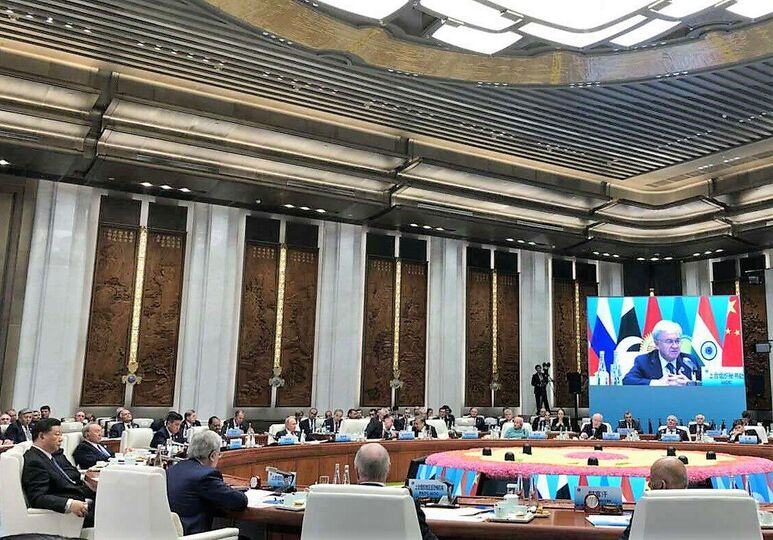The SCO summit in Qingdao became an historic event and opened up a new page in SCO development. The leaders of the SCO member states determined the trajectory of further strengthening of cooperation for the benefit of the peoples living in the SCO space.
Speaking at the SCO summit, the Secretary-General outlined the key parameters of the current level of the Organisation's development.
Thus, Rashid Alimov called the historic decision to admit India and Pakistan as full-fledged members an important step on the road of the ongoing progress, strengthening and unveiling the Organisations' unlimited potential. "The ‘Shanghai spirit' energy got an extra boost," the SCO Secretary-General said.
While describing the prospects for the Organisation, Rashid Alimov stressed in this context that new broad horizons were opened within the SCO for further progress in the relations of mutual understanding, respect and fruitful cooperation. "The synergy of the ‘SCO Eight' gave rise to a vibrant outpouring of creative initiatives," he stressed.
"The SCO economic and social agendas have expanded, the dialogue in culture, science and education is also deepening and diversifying. The SCO women's and youth movements are picking up momentum. The ‘Shanghai spirit' principles are being actively discussed in the global information space," Rashid Alimov added.
The SCO Secretary-General also stressed, "The SCO goals are becoming more attractive, close and understandable to millions of people around the world. An increasing number of countries and international organisations, including those outside the SCO area, are striving to cooperate with the Organisation."
Speaking about the SCO role and place in the global arena, the SCO Secretary-General said, "Based on the SCO Charter, the Organisation leads the process of democratisation of international relations, establishing a human community with a shared future. The SCO is increasingly needed as an active participant in setting up a multi-polar world. It is hard to imagine building global and regional security architecture without the SCO."
Rashid Alimov also touched upon the issues of SCO interaction with international bodies. In this regard, the SCO Secretary-General noted with satisfaction that interaction with the UN had advanced to a new qualitative level. First of all, it is interaction with the UN Secretariat, ESCAP and the United Nations Office on Drugs and Crime. "The Cooperation Memorandum with UNESCO will enhance relations with that universal organisation," Rashid Alimov added stressing that "the positive results are gained through the SCO cooperation with the CIS, CSTO and CICMA. Broad prospects have opened up for cooperation with ASEAN and other international organisations."
Summing up the results of China's SCO presidency, Rashid Alimov emphasised, "The road of 365 days from Astana to Qingdao incorporated around 200 dramatic events with each of them contributing to the SCO's steady progress. As a result, the potential of neighnourliness and interaction between the SCO nations and their peoples unfolds with new force in the Organisation's space, which is washed by three oceans and is home to almost a half of the world's population."
Rashid Alimov said that the key was that a largest trans-regional organisation with global responsibility emerged on the world's political map thanks to the combined efforts of the leaders of the member states. "The decisions of the first meeting of the ‘Shanghai Eight' Council of the Heads of States will open up a new era in the Organisation's history and will have pivotal significance for its future," the Secretary-General concluded.
